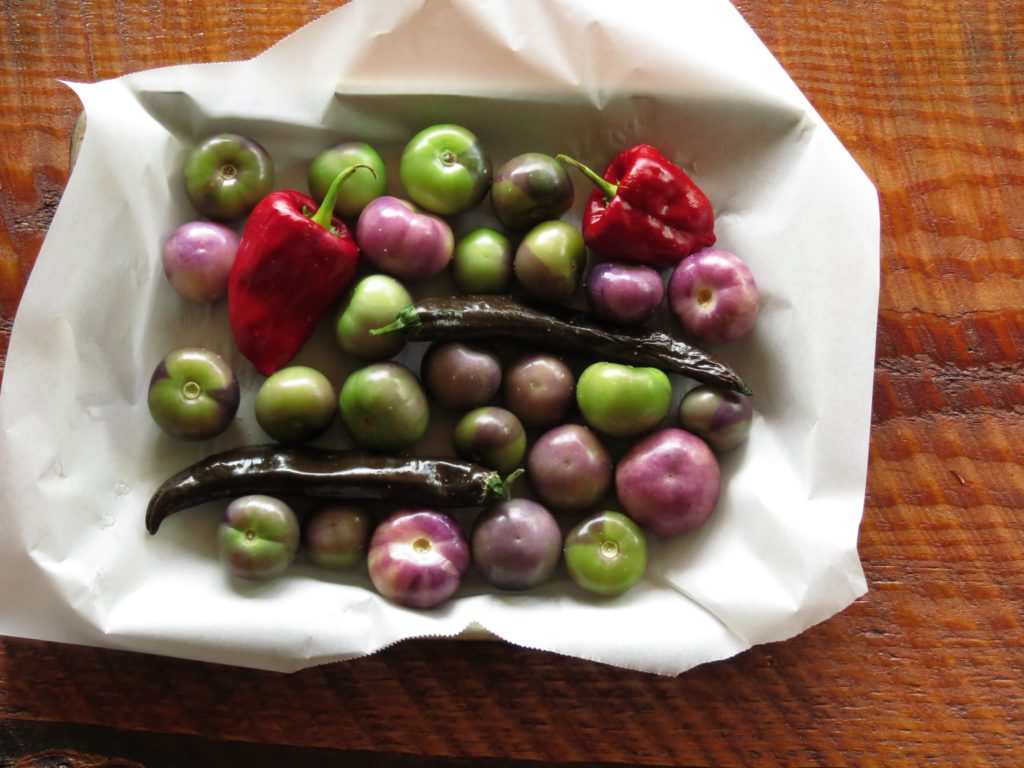I mean, probably not.
I mean, you might, but it may not be because your veg wasn’t organic. You know what I mean, don’t you?
Er…This is what I mean:
Bottom line – of cooourrrsse it is better to buy everything organic if you can. Fewer chemicals on your food is always a good thing.
BUT…
….if you’re like me, and haven’t (ahem..yet) won the jackpot, and your current budget is not organic friendly, what can you do? Are you doomed to pesticide laden purgatory and herbicide ridden hades?
Not in the least.
Here’s what you need to know if you want to minimise the nasties, and not piss off your pocketbook!
- First of all – if you are vegan (and I’m assuming you are trying to be, or at least interested in the subject if you’re reading this), do not even worry if you can’t budget for anything organic. Really. Why am I saying this? Because the most chemical laden foods are animal products. By eating these you are taking on the chemical load of the animal. Crops grown for livestock feed are the most heavily sprayed. The chemicals from these pesticides are fat-soluble and accumulate in the fat of the animal. Add this to the fact that lots of livestock are fed ground-up bits of other animals, and you’ll see how the problem is compounded. Meat and milk have much higher chemical levels than plant-food, so by ditching them you’ve already avoided the most pesticide laden food on the planet! Well done!
- Familiarise yourself with the clean fifteen (fruit and veg that contain the least pesticide residues, that are ok to buy non-organic) and the dirty dozen (fruit and veg to prioritise buying organic if you can).
- If you need to be super canny with the budget and can’t always afford to buy a dirty dozen item organic, maybe buy it organic every other time. Maybe see if the dish you are planning to make that would ordinarily contain something from the dirty dozen list could be made with another from the clean fifteen list. For example, I often make an Ethiopian soup that calls for a pound of potatoes (Booooooo, dirty). I realised the soup flavours would go just as well with sweet potatoes (yaaaay, clean!), and so now always make it that way. Sometimes, admittedly, that just won’t do. The recipe calls for an apple – you need a frickin’ apple. In that case, apply my next tips!
- Scrub, scrub, scrub your non-organic fruit and veg. You can buy an inexpensive little brush (like this one) specifically for this purpose.
- H2O. Drink it. If you are drinking enough water, your body is continuously being flushed out, so any toxins or chemicals that may be on your food have the best chance of being eliminated expediently. Or, should I say, exPEEdiently. Hee.
- If you read my post about flax seeds, you will remember that one of their many benefits is that they bind to, and transport toxins and heavy metals out of the body. Add 5 teaspoons ground flaxseeds to one meal per day (breakfast is often easier, as they go well on cereal or porridge).
- If you eat meat and dairy, or know you might have to buy non-organic fruit and veg on the dirty dozen list (or any others that may have been sprayed) here’s what to do: Try to eat plenty of soluble fibres (fruit, beans, oats, legumes, nuts), that soak up toxins in a sponge-like fashion as they pass through your body and prohibit them from entering the blood stream. Insoluble fibre foods are important too (found in veg, whole grains and seeds) as they ‘sweep up’ the colon as they pass through. As we’ve learnt, animal foods contains the most residues and precisely NO fibre, so it’s ultra important, if you’re a meat/dairy eater, to ensure you are getting plenty.
This last tip does rather beg the question ‘if I buy non-organic beans, does the fibre in them cancel out the pesticide residue?’ Hah! I don’t know. You just gotta do the best you can.
What do I always buy organic? Soy milk, whole grains, and as many veg and fruit on the dirty dozen list as possible (but I don’t always buy every single one organic).
Lentils and dried beans I often buy in bulk from the Asian aisle in the supermarket. This can be a good idea to offset the expense of the organic grains.
So, don’t fret if your budget doesn’t allow for a 100% organic foodshop. Follow these tips, and eliminate or minimise animal products for the greatest reduction in chemical nasties.

